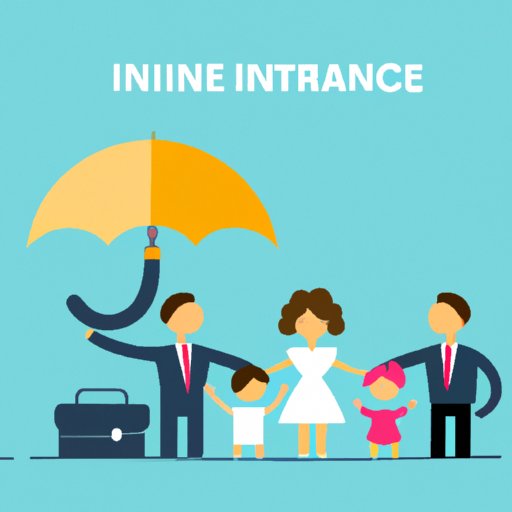Introduction
Life insurance is a type of insurance policy that pays out a sum of money to designated beneficiaries when the policyholder passes away. It is one of the most important investments you can make, as it provides financial security and peace of mind for you and your loved ones. But is buying life insurance a good investment? This article will explore the pros and cons of investing in life insurance, and provide a comprehensive guide to help you decide if it is a good investment for you.

A Guide to Deciding if Life Insurance is a Good Investment
Before making any decision about whether to invest in life insurance, it is important to assess your financial needs and goals. Consider what kind of coverage you need, how much you can afford to pay, and how long you plan on having the policy. These factors will help you determine which type of life insurance policy is best for you.
Exploring the Pros and Cons of Buying Life Insurance
When deciding whether or not to invest in life insurance, it is important to consider both the benefits and drawbacks. Here are some of the main advantages and disadvantages of investing in life insurance.
Benefits of Investing in Life Insurance
The primary benefit of investing in life insurance is the financial security it provides. The money paid out to your beneficiaries upon your death can be used to cover funeral costs, medical bills, and other expenses. In addition, life insurance policies also offer tax advantages, as the death benefit is typically free from income tax. Finally, life insurance policies provide flexibility, as you can adjust the amount of coverage and the premiums to suit your changing needs.
Drawbacks of Investing in Life Insurance
One of the main drawbacks of investing in life insurance is the high premiums. Depending on the type of policy, the premiums can be expensive and difficult to keep up with. Additionally, life insurance policies do not provide liquidity, meaning that you cannot access the funds while you are alive. This can make it difficult to use the money for other investments or emergencies.
The Hidden Benefits of Investing in Life Insurance
In addition to providing financial security to your loved ones, life insurance can also be used for other purposes. Estate planning is one of the most common uses for life insurance, as it can be used to pay off debts and transfer assets to heirs. Life insurance can also be used to provide care for dependents, such as children or elderly parents. Finally, life insurance can be used for charitable giving, as the death benefit can be donated to a charity of your choice.

Assessing the Financial Viability of Investing in Life Insurance
Once you have decided that life insurance is a good investment for you, it is important to assess the financial viability of the policy. First, determine your budget and how much you can realistically afford to pay in premiums. Next, compare the costs of different policies to find the best deal. Finally, calculate your return on investment (ROI) to see if the policy is worth the cost.

How to Maximize Your Return on Investment with Life Insurance
To maximize your ROI with life insurance, it is important to shop around for the best rates. Compare policies from different providers to find the best deal. Additionally, understand the different riders and benefits associated with each policy, as this will help you get the most out of your investment. Finally, take advantage of discounts, such as multi-policy discounts or no-claims bonuses, to reduce your premiums.

What You Need to Know Before Buying Life Insurance
Before purchasing a life insurance policy, there are a few things you should know. First, consider your age and health status, as these can affect your premiums. Next, choose the right policy for you, as there are several types of life insurance available. And finally, make sure you understand the terms and conditions of the policy, as this will help you avoid any unexpected fees or charges.
An Overview of the Different Types of Life Insurance Policies
There are four main types of life insurance policies: term life insurance, whole life insurance, universal life insurance, and variable life insurance. Term life insurance is the most basic and affordable type of policy, and it provides coverage for a specific period of time. Whole life insurance provides lifelong coverage, but it comes with higher premiums. Universal life insurance offers more flexibility than other types of policies, as the premiums and death benefits can be adjusted. Finally, variable life insurance is an investment-oriented policy, as part of the premiums are invested in stocks and bonds.
Conclusion
Buying life insurance is a great way to ensure that your loved ones are financially secure after your death. While life insurance does come with some drawbacks, such as high premiums and lack of liquidity, the benefits far outweigh the costs. To make the most of your investment, it is important to assess your financial needs and goals, understand the different types of life insurance policies, compare costs, and take advantage of discounts. With the right approach, investing in life insurance can be a wise decision.
(Note: Is this article not meeting your expectations? Do you have knowledge or insights to share? Unlock new opportunities and expand your reach by joining our authors team. Click Registration to join us and share your expertise with our readers.)
